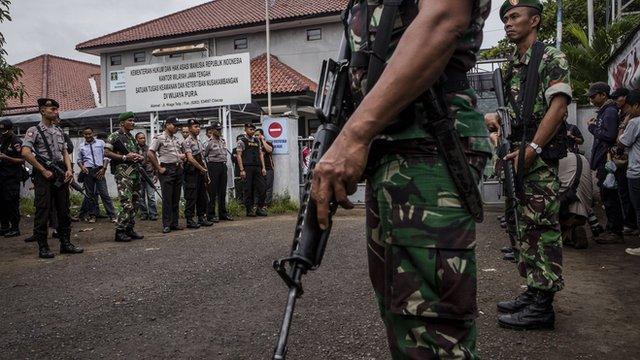The inmates executed or spared by Indonesia
- Published
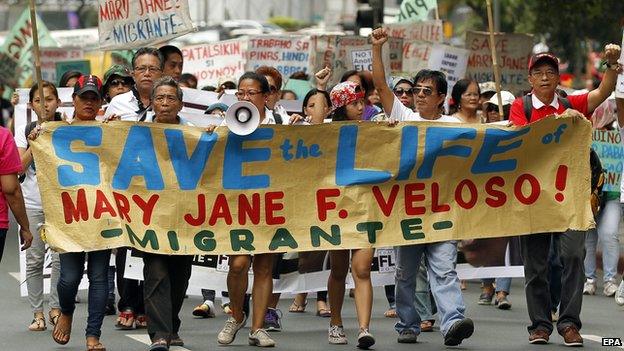
Family, friends and foreign diplomats appealed for the death sentences to be overturned
Eight prisoners convicted of drug offences in Indonesia have been executed by firing squad.
Pleas for leniency from the inmates, families and diplomats were rejected by President Joko Widodo.
But the execution of a Filipina who was also on death row was unexpectedly postponed.
Another death row convict, a Frenchmen, was not executed because he still has an outstanding legal complaint over the rejection of his clemency appeal.
Who are the prisoners and how did they end up on death row?
Myuran Sukumaran
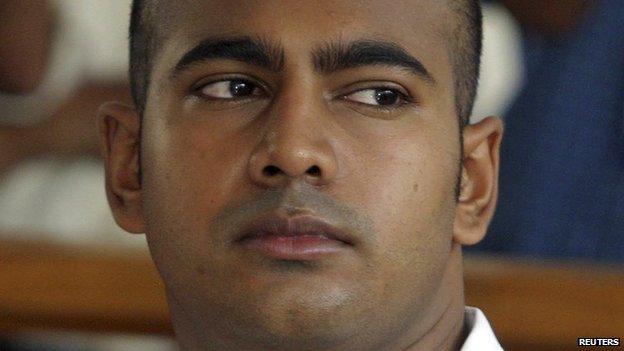
Sukumaran, 34, was an Australian citizen, born in London. In 2006, a court in Bali found him guilty of being the ringleader of the Bali Nine - a group of Australians arrested in Bali with more than 18lb (8.3kg) of heroin.
He was given the death penalty in 2006, and his plea for clemency was rejected in December 2014.
His advocates claimed he had reformed since entering prison, teaching other inmates English and art. He also became an accomplished artist himself. However, all attempts to appeal against his sentence failed.
Andrew Chan
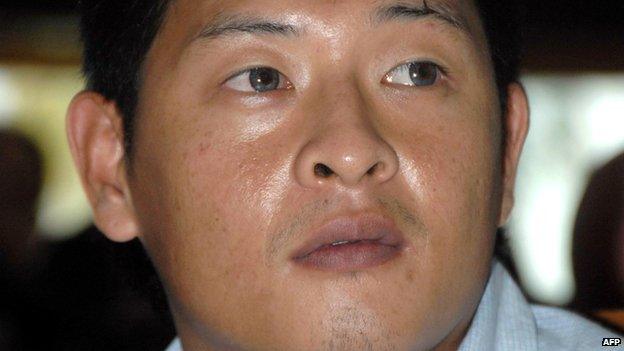
Chan, 31, was an Australian who was given the death penalty along with Myuran Sukumaran.
He was arrested in Ngurah Rai airport in Bali in April 2005. A court found him guilty of planning the smuggling of 18lb heroin with the group known as the Bali Nine.
His plea for clemency was rejected in January 2015. Like Sukumaran, other legal challenges all failed.
His supporters claimed he had turned over a new leaf and and ran Bible study classes in Bali's Kerobokan jail.
Martin Anderson
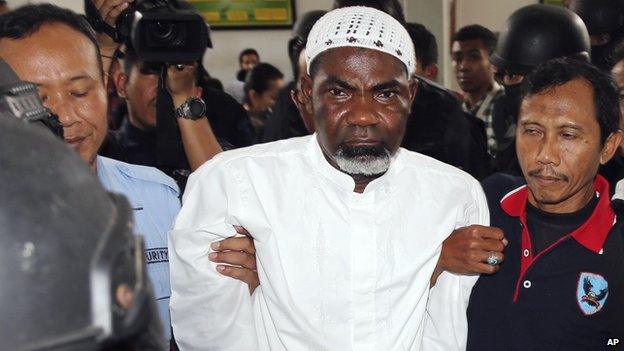
There is some confusion surrounding Anderson's nationality. Initial reports said he was Ghanaian, but it was later reported he had travelled to Indonesia on a false passport and was in fact Nigerian.
He was arrested in Jakarta in 2003, and a court gave him the death penalty. His clemency appeal was rejected in January 2015.
Zainal Abidin bin Mgs Mahmud Badarudin
Badarudin was the only Indonesian citizen amongst the group. He was born in Palembang and was found guilty of the possession of 129lb of marijuana.
He was arrested in December 2000 and a year later was given the death sentence. His appeal for clemency was rejected in January 2015.
Raheem Agbaje Salami
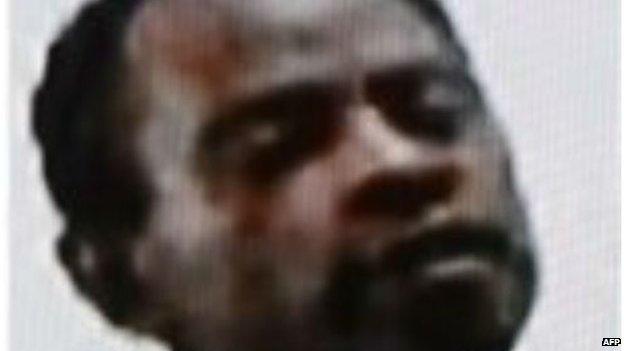
Salami appeared to be a Nigerian holding a Spanish passport. He was believed to be Jamiu Owolabi Abashin, but entered Indonesia using a Spanish passport with the name Raheem Agbaje Salami.
Salami was caught with 11lb of heroin inside his suitcase in Surabaya airport on 2 September 1998.
A court in Surabaya gave him a life sentence in April 1999, which was reduced by the High Court to 20 years.
Salami appealed and the Supreme Court gave him a death sentence. His clemency application was rejected on 5 January 2015.
He tried to challenge the rejection of his clemency but the challenge failed.
Rodrigo Gularte
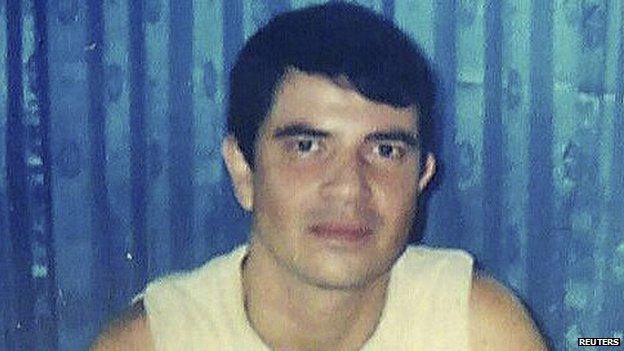
Gularte was a Brazilian citizen born on 31 May 1972. A court in Banten gave him the death penalty in February 2005 on charges of possessing 13.2lb of heroin that was hidden in a surf-board.
He was arrested in July 2004 in Sukarno Hatta airport in Jakarta. His clemency application was rejected in January 2015.
His planned execution raised concern among activists because his family claimed that Gularte had mental health problems.
Under Indonesian law, mental health patients cannot be prosecuted and must be cared for in a psychiatric hospital.
Sylvester Obiekwe Nwolise
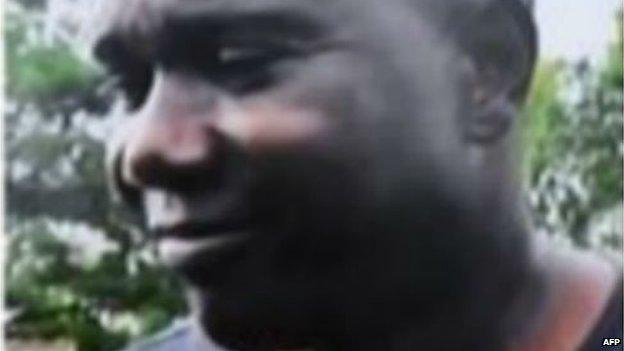
Nwolise was a Nigerian citizen born on 7 July 1965. He was sentenced to death in September 2004 by a court in Tangerang. His clemency appeal was rejected in February.
The court found him guilty of trafficking 2.6lb of heroin via Sukarno Hatta Airport in Jakarta in 2002.
In January 2015 the Indonesian National Narcotics Body said that Sylvester was running a drugs ring in Nusakambangan jail, where he was being held.
Okwudili Oyatanze
Oyatanze was a 45-year-old Nigerian citizen and was given the death sentence by the Tangerang court for trafficking 2.4lb of heroin through Sukarno Hatta airport in 2001.
His clemency was rejected in February 2015.
Mary Jane Fiesta Veloso
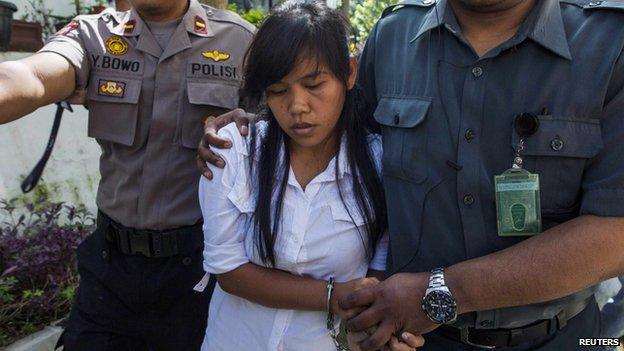
Veloso was arrested in Yogyakarta airport in April 2010. A court found her guilty of attempting to smuggle 5.7lb of heroin and she was given the death penalty in October 2010.
At her trial, she said she flew to Indonesia because a family friend had promised her a job as a maid. She said a woman working with an international crime gang had secretly placed the heroin in a suitcase she was carrying.
The execution of Veloso, who is from the Philippines and has two young sons, was postponed at the last minute, after the alleged recruiter surrendered to police. Philippine President Benigno Aquino called his Indonesian counterpart asking him to spare Veloso, saying she could testify in the accused's trial.
Veloso's family and friends have said it is a miracle.
"We thought we've lost my daughter. I really thank God. What my daughter Mary Jane said earlier was true; 'If God wants me to live, even if just by a thread or just in the final minute, I will live'," her mother, Celia Veloso, told local media.
Serge Areski Atlaoui
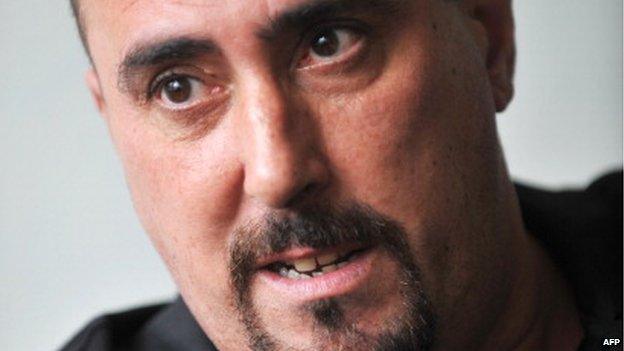
Atlaoui was not executed with the eight others because he still has an outstanding legal complaint over the procedure followed his request for clemency.
Atlaoui is a French citizen, born in December 1963. The married father-of-four was arrested by Jakarta police at a house in Banten province dubbed the "ecstasy pills factory" by local media.
A court found him guilty in 2007 of trafficking 551lb of hallucinogens and 306lb of methamphetamines.
He was initially sentenced to life imprisonment. Then, upon appeal, the Supreme Court sentenced him to death by firing squad. His clemency appeal was rejected in December 2014.
Atlaoui filed a judicial review against his death sentence and said he had new evidence to show that he was innocent. He claimed he travelled to Indonesia to work as a technician in a factory installing some equipment.
Indonesian Attorney General Muhammad Prasetyo said Atlaoui would face a firing squad alone if his complaint was turned down by the Administrative Court.
France's Foreign Minister Laurent Fabius repeated calls for clemency in a tweet, external (in French) in April.
- Published12 March 2015
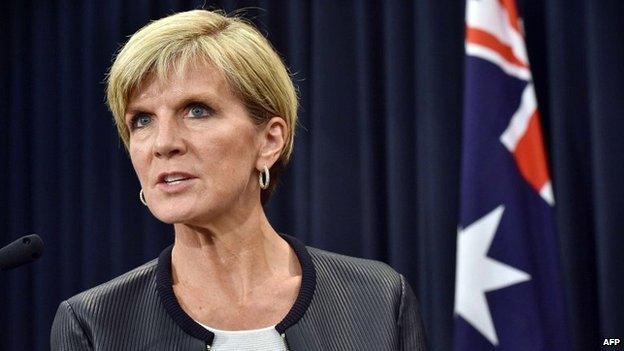
- Published9 March 2015
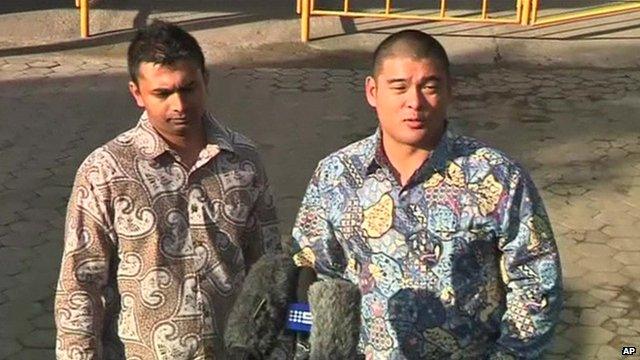
- Published5 March 2015
